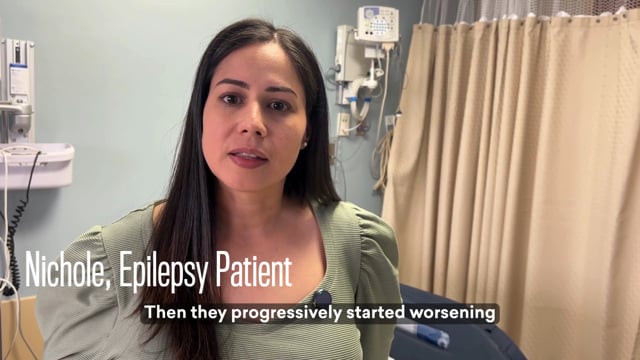Epilepsy
A neurological disorder, epilepsy is characterized by unpredictable seizures.
Epilepsy is the fourth most common neurological disorder and affects people of all ages. With epilepsy, brain activity becomes abnormal, causing seizures or periods of unusual behavior, sensations and sometimes, loss of awareness. Someone is said to have epilepsy if they experience two or more unprovoked seizures separated by at least 24 hours or after one seizure with a high risk for more.
Epilepsy Causes
For about half of the people diagnosed with epilepsy, there is no identifiable cause. In the other half, the condition may be traced to various factors, including:
- Genetic influence
- Head trauma
- Brain conditions
- Infectious diseases
- Prenatal injury
- Developmental disorders
Epilepsy Symptoms
Because epilepsy is a disorder that causes seizures, experiencing unprovoked seizures is the primary sign of the condition. Seizure signs and symptoms can vary in each person, but typically include:
- Temporary confusion
- A staring spell
- Uncontrollable jerking movements of the arms and legs
- Loss of consciousness or awareness
- Psychic symptoms such as fear, anxiety or déjà vu
In most cases, a person with epilepsy will tend to have the same type of seizure each time. Therefore, the symptoms will be similar from episode to episode.
Epilepsy Diagnosis
To determine the cause of seizures and potentially diagnose epilepsy, your doctor will review your symptoms and medical history. They may also order several tests and exams, including:
- A neurological exam
- Blood tests
- An electroencephalogram (EEG)
- A high-density EEG
- A computerized tomography (CT) scan
- Magnetic resonance imaging (MRI)
- Positron emission tomography (PET)
- Neuropsychological tests
Epilepsy Treatments
Doctors generally approach epilepsy treatment with medication first. If medications don't treat the condition, doctors may propose:
- Surgery, such as the laser ablation technology use to complete minimally invasive stereotactic neurosurgery
- Vagus nerve stimulation
- Another type of treatment like therapy
Tampa General Hospital is proud to be an accredited level 4 epilepsy center with a team of neurologists, neurosurgeons, neuropsychologists, nurses and technicians that are specialists in the diagnosis and treatment of seizures in both adults and children.
Click on the following links for more information about Laser Ablation technology: www.visualaseinc.com
Nichole's Story

